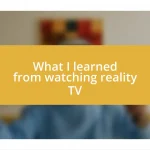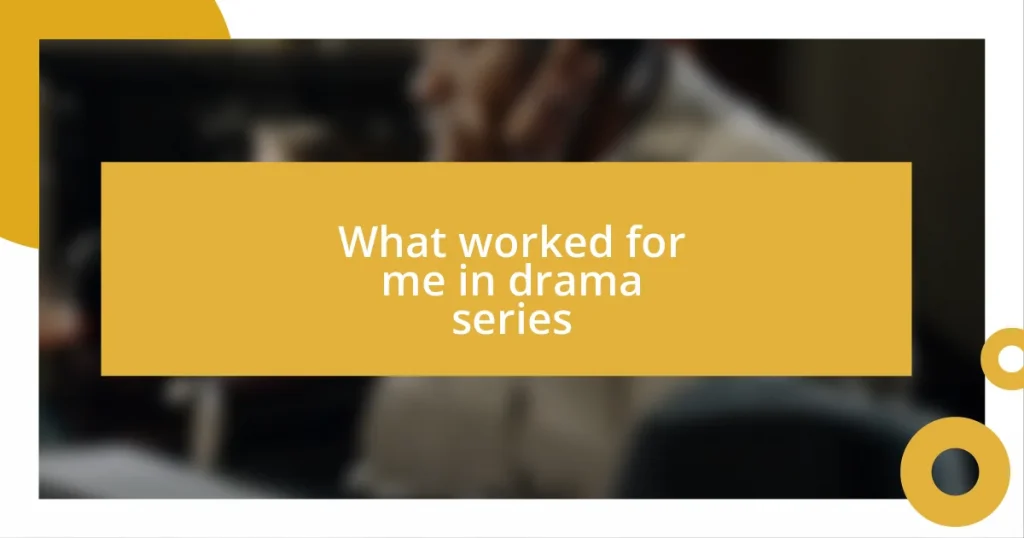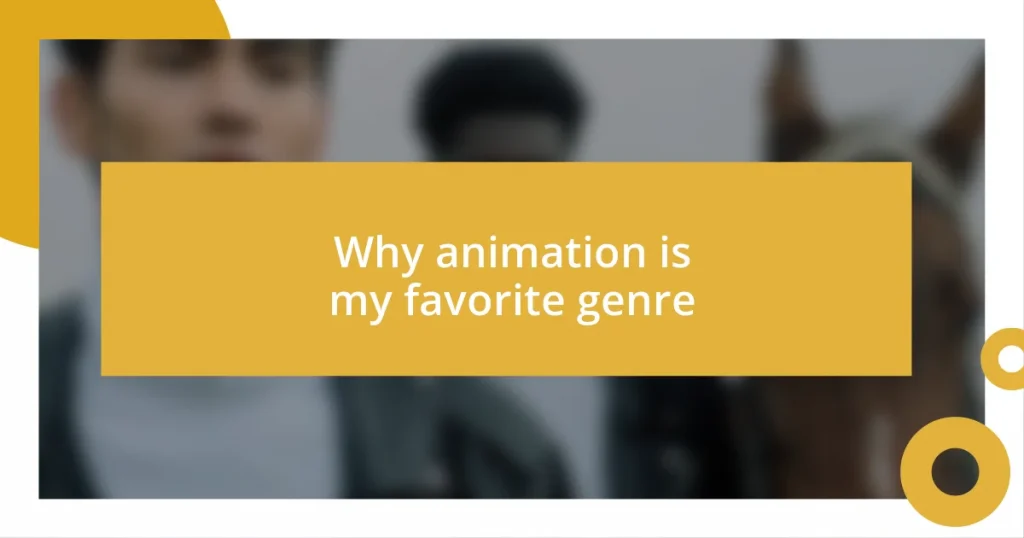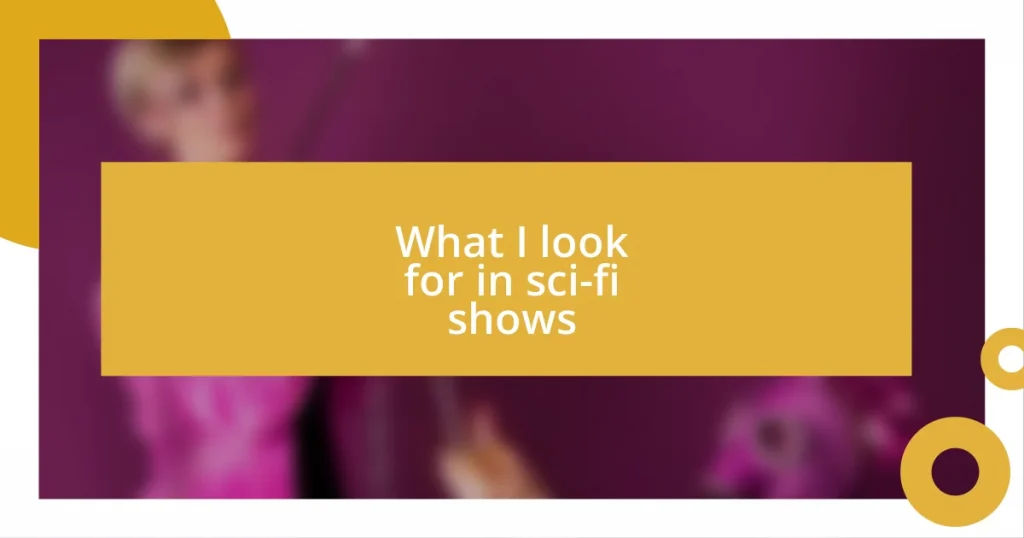Key takeaways:
- Regularly assess and refine career goals to align with personal passions and evolving experiences.
- Building authentic relationships through networking and mentorship enhances career opportunities and growth.
- Continuous learning and adaptability are essential for navigating career challenges and achieving long-term success.
Assessing your career goals
Taking a moment to assess your career goals is like hitting the refresh button on your ambitions. I remember a time when I was caught in a job that didn’t resonate with me at all. It took a few late nights reflecting on what truly excited me to clarify my next steps—it was a bit of a revelation that led me to seek opportunities aligned with my true passions.
When considering your career goals, ask yourself: What do I genuinely want to achieve? Sometimes, I think we complicate things by chasing what we think we should want rather than what we actually desire. For me, understanding that my strength lay in creativity rather than in rigid structures helped me pivot toward roles that not only utilized my skills but also ignited my passion.
It’s crucial to revisit and refine those goals regularly. I’ve found that career aspirations can evolve based on our experiences and changing circumstances. When was the last time you evaluated where you want to be in five or ten years? By checking in with ourselves, we ensure that we’re steering our career in a direction that feels fulfilling and personally rewarding.
Building a professional network
Building a professional network is one of the most impactful steps I’ve taken in my career. I recall my early days when I hesitated to reach out to others. It felt daunting, but I learned that surrounding myself with diverse professionals opened countless doors. Each connection brought unique insights, opportunities, and sometimes friendships that enriched my journey.
Networking isn’t just about collecting business cards or LinkedIn connections; it’s about nurturing relationships. I remember attending a local industry event, striking up a conversation with a fellow attendee. What started as a casual chat turned into a mentor-mentee relationship that significantly shaped my career direction. That experience taught me that genuine connections can lead to unexpected opportunities, and sometimes those small moments can have a profound impact.
It’s important to approach networking with authenticity and intention. I’ve found that reaching out with a specific purpose—whether for advice, collaboration, or even just to catch up—makes all the difference. Think about the people in your circle: who inspires you? Who might you be able to help? Building a network is truly a reciprocal process that thrives on trust and mutual support.
| Aspect | Importance |
|---|---|
| Connections | Leads to opportunities but requires nurturing. |
| Authenticity | Creates trust and meaningful relationships. |
| Diversity | Brings new perspectives and insights. |
Enhancing skills and knowledge
Enhancing skills and knowledge has been a transformative journey for me. Early in my career, I was hesitant to invest time in further learning, but as I faced new challenges, I realized that embracing growth was essential. I vividly remember enrolling in a course that seemed daunting at first—my heart raced with both excitement and fear. However, the moment I gained a new perspective or tackled a tricky concept, it felt like unlocking a door to a wider understanding of my professional world.
Here are some practical ways I’ve enhanced my skills and knowledge over the years:
- Embrace Continuous Learning: Online courses and webinars can fill gaps in knowledge that might be holding you back.
- Seek Feedback: I often ask for constructive feedback from colleagues to identify areas for improvement; it can be a game-changer.
- Read Widely: I try to read articles, books, and industry reports regularly. This keeps me informed of trends and shifts in my field.
- Practice: The best way to learn is by doing. I’ve taken on projects outside my usual scope, which has greatly expanded my skills.
Investing in yourself is an ongoing commitment that pays dividends in the long run. I’ve realized that the more I learn, the more equipped I feel to handle diverse challenges and pursue my aspirations with confidence.
Seeking mentorship and guidance
Seeking mentorship and guidance has been a game-changer in my career. I remember feeling a bit lost early on, unsure about my direction. That’s when I reached out to a mentor who not only listened but offered invaluable perspectives on navigating challenges. It felt like a weight lifted off my shoulders; having someone to turn to made all the difference in my confidence and decision-making.
The relationship I built with my mentor was not just about receiving advice; it transformed into a collaborative journey. I recall a moment where I faced a daunting project, and instead of stressing, I called my mentor. Their insights not only helped refine my strategy, but they also encouraged me to trust my instincts. Have you ever experienced such guidance? That support can help clarify thoughts and turn uncertainty into a proactive plan.
I’ve also learned to extend this mentorship model by seeking out others who might benefit from my experiences. It’s rewarding to see someone else grow and gain confidence through the support I can provide. Mentorship is a truly reciprocal relationship that fosters growth on both sides. By giving and receiving, we create a vibrant network of knowledge-sharing that can elevate our professional journeys in ways we never anticipated.
Taking on leadership roles
Taking on leadership roles has been one of the most pivotal decisions in my career journey. I still recall my first experience as a team leader; the nerves were real, and I wasn’t sure I had what it took. But the moment I made that leap, I discovered an unexpected source of strength within myself, driving me to inspire others while pushing my limits.
When I stepped into a leadership position, I was surprised by how much my perspective shifted. Suddenly, I wasn’t just focused on my own tasks; I had to consider the team’s dynamics and motivations. I remember one specific project where I had to unite different personalities under a common goal. At first, it felt overwhelming, but as I learned to foster communication and trust, a sense of camaraderie blossomed that I had never experienced before. Isn’t it fascinating how leadership can unveil hidden talents in ourselves and others?
Every leadership role has taught me that it’s not solely about directing others—it’s also about continuous self-improvement. There’s a saying that “leaders are readers,” and I found that the more books I read on leadership styles and conflict resolution, the better I could guide my team. Reflecting on those experiences, I realize that taking on leadership has enriched my career not just by advancing my position, but by reshaping my understanding of collaboration and empathy.
Establishing a personal brand
Establishing a personal brand is about showcasing who you truly are and what you stand for in your professional life. I remember when I first realized the power of a personal brand during a networking event. As I shared my story and passions, I felt a strong connection with people; it made me realize that authenticity resonates. Have you ever noticed how people are drawn to genuine interactions? That moment illuminated for me that a personal brand isn’t just a polished resume; it’s about crafting a narrative that reflects your unique journey and values.
When I began actively curating my online presence, it felt somewhat daunting at first. I focused on creating content that aligned with my skills and passions. For example, I started a blog where I shared insights from my industry. This small step not only built my credibility but also gave me a platform to engage with like-minded professionals. The encouragement I received through comments and shares felt invigorating. Engaging in this way made me realize that my perspective mattered; it could inspire or help someone else on their journey.
Evaluating progress and making adjustments
Evaluating your career progress can be a transformative experience. I like to set aside time every few months to assess where I am in relation to my goals. It’s almost like a checkpoint on a road trip – you can’t know how far you’ve come without taking stock of the journey. I remember one instance where I thought I was on track, only to realize through my evaluation that I had strayed from my original intentions. This prompted me to recalibrate my strategy, which was both humbling and enlightening.
I’ve found that adjusting my plans based on evaluations often opens my eyes to new opportunities I hadn’t considered. For example, during one such evaluation, I recognized that my skills were not aligning with the demands of my industry. It was a wake-up call. Rather than feeling defeated, I enrolled in a new course to bridge the gap. This proactive step not only reignited my passion for learning but also enhanced my skill set significantly. Have you ever experienced that moment where a small adjustment leads to a big shift in direction?
Consistency in this evaluation process is vital. I can’t stress enough the importance of being flexible and open to change. Each self-assessment I conduct reflects my growth and areas needing attention. Adapting my career path based on what I discover has often led me to roles that resonate more deeply with my passions. It’s a constant dance between intention and flexibility. How often do you check in with your career goals? After all, each adjustment can enhance your journey toward success in ways you never imagined.












